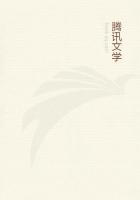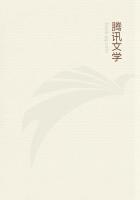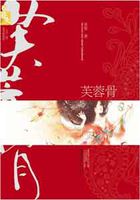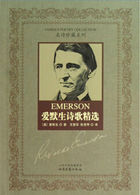Sometimes these ex-students positively refuse at first to work; and more than once parents have openly expressed their regret that they ever allowed their sons to be inveigled to school."The little book which I am quoting from is called "Indo-Anglian Literature," and is well stocked with "baboo" English--clerkly English, hooky English, acquired in the schools. Some of it is very funny,--almost as funny, perhaps, as what you and I produce when we try to write in a language not our own; but much of it is surprisingly correct and free. If I were going to quote good English--but I am not. India is well stocked with natives who speak it and write it as well as the best of us. I merely wish to show some of the quaint imperfect attempts at the use of our tongue. There are many letters in the book; poverty imploring help--bread, money, kindness, office generally an office, a clerkship, some way to get food and a rag out of the applicant's unmarketable education; and food not for himself alone, but sometimes for a dozen helpless relations in addition to his own family; for those people are astonishingly unselfish, and admirably faithful to their ties of kinship. Among us I think there is nothing approaching it. Strange as some of these wailing and supplicating letters are, humble and even groveling as some of them are, and quaintly funny and confused as a goodly number of them are, there is still a pathos about them, as a rule, that checks the rising laugh and reproaches it. In the following letter "father" is not to be read literally. In Ceylon a little native beggar-girl embarrassed me by calling me father, although I knew she was mistaken. I was so new that I did not know that she was merely following the custom of the dependent and the supplicant.
"SIR, "I pray please to give me some action (work) for I am very poor boy I have no one to help me even so father for it so it seemed in thy good sight, you give the Telegraph Office, and another work what is your wish I am very poor boy, this understand what is your wish you my father I am your son this understand what is your wish.
"Your Sirvent, P. C. B."
Through ages of debasing oppression suffered by these people at the hands of their native rulers, they come legitimately by the attitude and language of fawning and flattery, and one must remember this in mitigation when passing judgment upon the native character. It is common in these letters to find the petitioner furtively trying to get at the white man's soft religious side; even this poor boy baits his hook with a macerated Bible-text in the hope that it may catch something if all else fail.
Here is an application for the post of instructor in English to some children:
"My Dear Sir or Gentleman, that your Petitioner has much qualification in the Language of English to instruct the young boys;I was given to understand that your of suitable children has to acquire the knowledge of English language."As a sample of the flowery Eastern style, I will take a sentence or two from along letter written by a young native to the Lieutenant-Governor of Bengal--an application for employment:
"HONORED AND MUCH RESPECTED SIR, "I hope your honor will condescend to hear the tale of this poor creature. I shall overflow with gratitude at this mark of your royal condescension. The bird-like happiness has flown away from my nest-like heart and has not hitherto returned from the period whence the rose of my father's life suffered the autumnal breath of death, in plain English he passed through the gates of Grave, and from that hour the phantom of delight has never danced before me."It is all school-English, book-English, you see; and good enough, too, all things considered. If the native boy had but that one study he would shine, he would dazzle, no doubt. But that is not the case. He is situated as are our public-school children--loaded down with an over-freightage of other studies; and frequently they are as far beyond the actual point of progress reached by him and suited to the stage of development attained, as could be imagined by the insanest fancy.
Apparently--like our public-school boy--he must work, work, work, in school and out, and play but little. Apparently--like our public-school boy--his "education" consists in learning things, not the meaning of them; he is fed upon the husks, not the corn. From several essays written by native schoolboys in answer to the question of how they spend their day, I select one--the one which goes most into detail:
"66. At the break of day I rises from my own bed and finish my daily duty, then I employ myself till 8 o'clock, after which Iemploy myself to bathe, then take for my body some sweet meat, and just at 9 1/2 I came to school to attend my class duty, then at 2 1/2 P. M. I return from school and engage myself to do my natural duty, then, I engage for a quarter to take my tithn, then I study till 5 P. M., after which I began to play anything which comes in my head. After 8 1/2, half pass to eight we are began to sleep, before sleeping I told a constable just 11 o' he came and rose us from half pass eleven we began to read still morning."It is not perfectly clear, now that I come to cipher upon it. He gets up at about 5 in the morning, or along there somewhere, and goes to bed about fifteen or sixteen hours afterward--that much of it seems straight;but why he should rise again three hours later and resume his studies till morning is puzzling.
I think it is because he is studying history. History requires a world of time and bitter hard work when your "education" is no further advanced than the cat's; when you are merely stuffing yourself with a mixed-up mess of empty names and random incidents and elusive dates, which no one teaches you how to interpret, and which, uninterpreted, pay you not a farthing's value for your waste of time. Yes, I think he had to get up at halfpast 11 P.M. in order to be sure to be perfect with his history lesson by noon. With results as follows--from a Calcutta school examination:
"Q. Who was Cardinal Wolsey?

